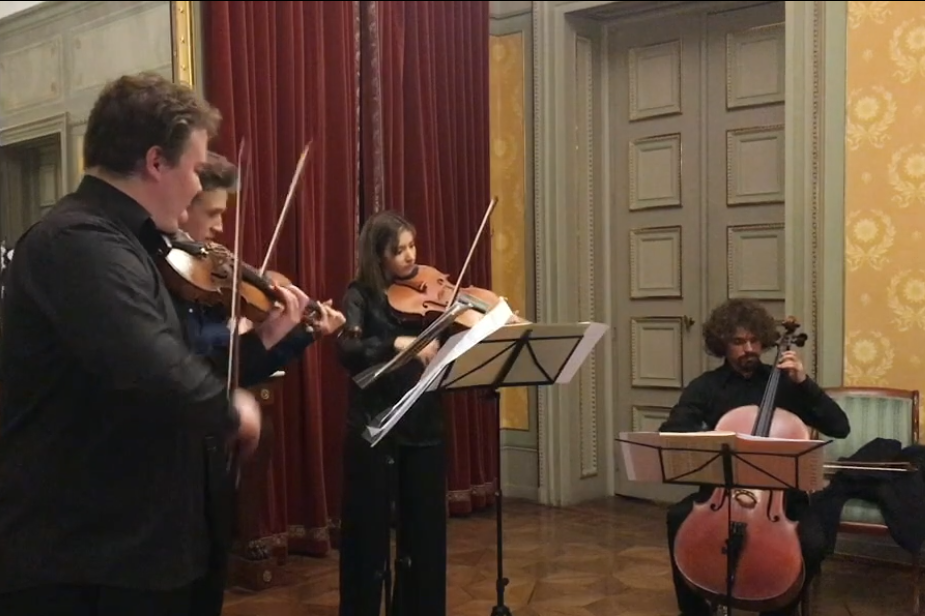
Oct 16, 2019 | Multimedia items, News, Video clips
ICJ’s first ever fundraising gala took place on 14 October at the iconic setting of the Palais Eynard in Geneva.
Sami Kanaan, Counselor and former Mayor of the City of Geneva, which provided its generous support, opened the event by speaking of the importance of the ICJ cooperation with the local legal community.
Next, several speakers offered a few answers to the theme of the evening: ‘Geneva, the defense of the Rule of Law: what can I do?’.
Pierre de Preux, former Bâtonnier, explained the great value that can be brought to defending rule of law in the world by supporting the ICJ through missions, as he himself did in Tunisia in the 80s.
He was followed by ICJ Commissioners Sir Nicolas Bratza (former President of the European Court of Human Rights), who discussed backsliding on human rights in contemporary Europe; lawyer Reed Brody, who discussed his work in bringing powerful dictators to account for human rights atrocities; and Justice Martine Comte of France, who described her experience in leading ICJ missions in Central Asia.
The ICJ President Prof. Robert Goldman and ICJ Secretary General Sam Zarifi also addressed the attendees.
The exchange was then followed by an inspiring concert by the young virtuosi of the Menuhin Academy and a delicious Buffet cocktail provided by refugee Chefs Jena Hamza (Syrian Kurd) and Sritharan Tambithurai (Sri Lanka). All in all, a wonderful evening combining substance, beauty and friendship.
Watch the video here:
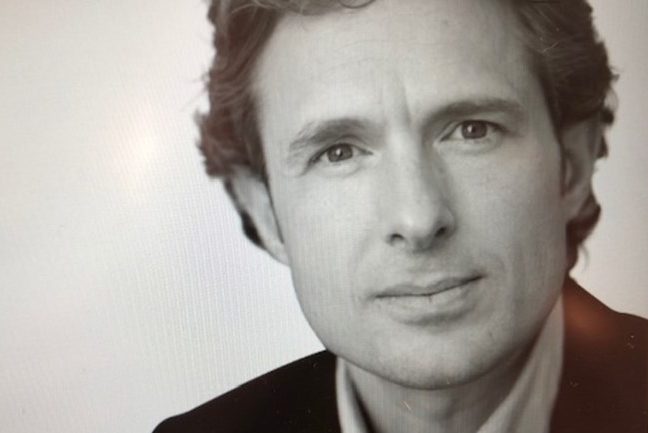
Sep 20, 2019 | News
The ICJ today expressed concern at the killing of lawyer Derk Wiersum, who was shot on 18 September 2019 in broad daylight in front of his home in Amsterdam.
Derk Wiersum was representing a key witness for the prosecution in a high-profile criminal trial against 16 members of a criminal organization, accused of five murders and an attempted murder between 2015 and 2017.
The Netherlands’ counter-terrorism agency, NCTV, is leading a team of police and prosecutors carrying out an investigation into the killing; other lawyers and officials involved in the case have been put under emergency protection.
“The killing of a lawyer, apparently in connection with his work, raises serious concern both for security of lawyers and for the rule of law. We welcome the prompt measures taken by the Dutch authorities to initiate an investigation into this crime, which should lead to the identification and prosecution of the perpetrators. It is also crucial that measures be taken to ensure the safety of other lawyers and other individuals who may be at risk,” said Róisín Pillay, ICJ Europe Programme Director.
Dutch lawyers, prosecutors and judges have issued a joint statement expressing their shock and raising concern at the threat of this attack to the country’s legal system.
Additional information:
International human rights law, including the European Convention on Human Rights to which the Netherlands is a party, requires that States take steps to protect the life and physical integrity of persons who they know or ought to know are at real risk of violence.
According to the UN Basic Principles on the Role of Lawyers, governments must ensure that lawyers are able to perform all of their professional functions without intimidation, hindrance, harassment or improper interference (principle 16). The UN Basic Principles specify that “[w]here the security of lawyers is threatened as a result of discharging their functions, they shall be adequately safeguarded by the authorities” (principle 17).
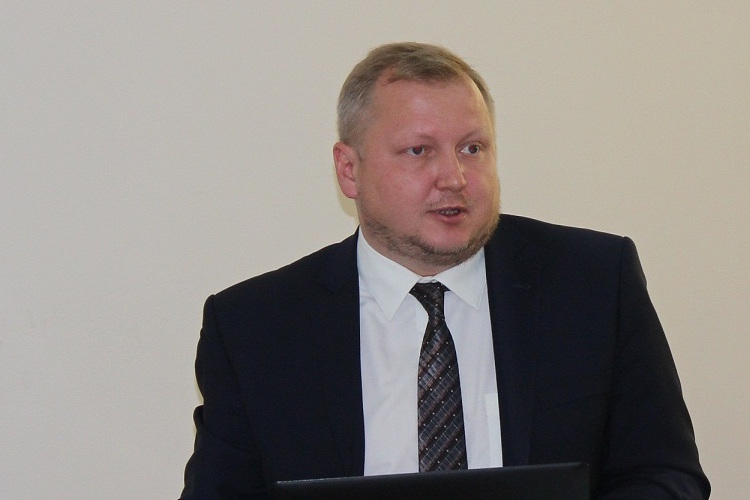
May 24, 2019 | News
Following the decision of the Petropavlovsk Court to disbar Sergey Sizintsev the former Executive Director of the National Bar Association, the ICJ reiterates its concerns at the unjustified proceedings against him.
The ICJ calls on the relevant authorities to revise the decision to disbar Sizintsev, which is not issued in accordance with the law and may constitute retaliation for his open criticism of the problematic reform of the legal profession in Kazakhstan.
On 21 May, the Petropavlovsk City Court No. 2, in a hearing chaired by judge Larisa Krukova, approved the application of the Ministry of Justice of the Republic of Kazakhstan to revoke Sergey Sizintsev’s license to practice law.
The formal reason for the disbarment was that the lawyer practiced law while being the Executive Director of the Republican Bar Association from 2016 to 2018.
According to the complaint of the Ministry of justice, a member of the Bar Association was prohibited from “occupying a position in the public service or engaging in business activities or holding any other paid position” in accordance with article 33.11 of the “Law on Advocates Activity and Legal Aid”.
Sizintsev argued that the Ministry of Justice incorrectly interpreted the notion of “another paid position”, since the second sentence of the same article states that “A lawyer has the right to be elected to a paid elected or appointed position in the Bar Association, the Republican Bar Association and international public associations of lawyers”.
Also, the lawyer stated that he had previously addressed a request to the Ministry of justice asking about possibility of holding a position in the Bar Association and working as an advocate and the Ministry of justice in its official response stated that “Lawyers occupying elective or appointed posts in the territorial or Republican bar associations are not obliged to take any action to terminate their license to engage in advocacy, unless there are other grounds provided by law”.
It was also answered, “that in this connection, for the indicated reasons, the validity of the license for the right to engage in advocacy activity should not been suspended”. In addition, the Ministry of Justice previously voiced a similar position on its official web-portal in response to a request from another user.
The ICJ has previously raised concerns that pressure on Sizintsev and other lawyers started after they had actively advocated against the law “On Advocates Activity and Legal Aid”, which attempted to interfere with the independence of the legal profession.
In that regard, the ICJ reiterates that according to the UN Basic Principles on the Role of Lawyers, lawyers like other citizens are entitled to freedom of expression, belief, association and assembly.
In particular, they have the right to take part in public discussion on matters concerning the law, the administration of justice and the promotion and protection of human rights and to join or form local, national or international organizations and attend their meetings, without suffering professional restrictions by reason of their lawful action or their membership in a lawful organization. (Principle 23).
In cases of disciplinary action against lawyers, international standards provide that “[a]ll disciplinary proceedings shall be determined in accordance with the code of professional conduct and other recognised standards and ethics of the legal profession and in the light of [the UN Basic Principles on the Role of Lawyers]” (Principle29).
Therefore, the ICJ calls for the case to be reconsidered on appeal in accordance with the clear terms of Article 33.11 of the Law on Advocates Activity and Legal Aid, and in light of the rights of lawyers to exercise their freedom of expression and association including through participation in organisations of lawyers and through criticism of legislation affecting the profession.
The ICJ further calls on the Ministry of Justice to end pressure on the active members of the Bar Association for legitimate exercise of their rights and duties as lawyers in accordance with the national legislation and international human rights standards and law.
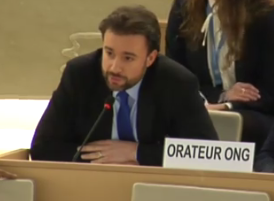
Mar 1, 2018 | Advocacy, Non-legal submissions
The ICJ today delivered an oral statement to the UN Human Rights Council, on attacks on lawyers and the legal profession in Turkey, Azerbaijan, Kazakhstan and China.
The statement, which was made during an interactive dialogue with the UN Special Rapporteur on human rights defenders and the UN Special Rapporteur on Torture, read as follows:
Our organizations welcome that the main report (A/HRC/37/51, para 13) and communications report (A/HRC/37/51/Add.1, e.g. paras 278-297, 431, 508-510) of the Special Rapporteur on Human Rights Defenders recognizes the role of lawyers as human rights defenders. In this regard, we would highlight the global problem of continued attacks on lawyers and threats to the independence of their profession, including for example as is well known in China (A/HRC/37/51/Add.1, paras 278-297), but also in Azerbaijan, Kazakhstan and Turkey.
In Azerbaijan, lawyers face criminal prosecution, suspension or disbarment for statements clearly constituting protected freedom of expression. The lack of independence of the Bar Association is a serious concern, even more so now that new legislation prohibits lawyers from representing clients before courts unless they become a member.
In Kazakhstan, a proposed new law threatens the independence of lawyers by providing for representatives of the executive to be included on disciplinary bodies of the legal profession, contrary to international standards.
Finally, the situation of lawyers in Turkey under the current state of emergency is of particular concern. In particular, echoing the recent statement of five UN special procedures mandate holders for his release, we expresses concern at the current detention of Taner Kılıç, lawyer and president of Amnesty International Turkey.
These arrests, trial and disbarments as well problematic legislative changes have a chilling effect on the work of lawyers. They undermine access to effective and independent legal assistance to protect human rights, in contravention of the rights of both the lawyers and their clients, including as mentioned in the report of the visit to Turkey by the Special Rapporteur on Torture (A/HRC/37/50/Add.1, paras 24, 26, 41, 63-66, 71, 101(d)(e)(h), 106(c)).
Our organizations urge the Council to address these worrying developments threatening the rule of law.
The following organizations joined the statement, in addition to the ICJ:
- International Bar Association’s Human Rights Institute (IBAHRI)
- Union Internationale des Avocats (UIA)
- Lawyers for Lawyers (L4L)
- the Law Society of England and Wales
- Lawyer’s Rights Watch Canada (LRWC), and
- the Bar Human Rights Committee of England and Wales (BHRC).
The statement can be downloaded in PDF format here: UN-HRC37-JointOralStatement-LawyersHRDsTorture-2018
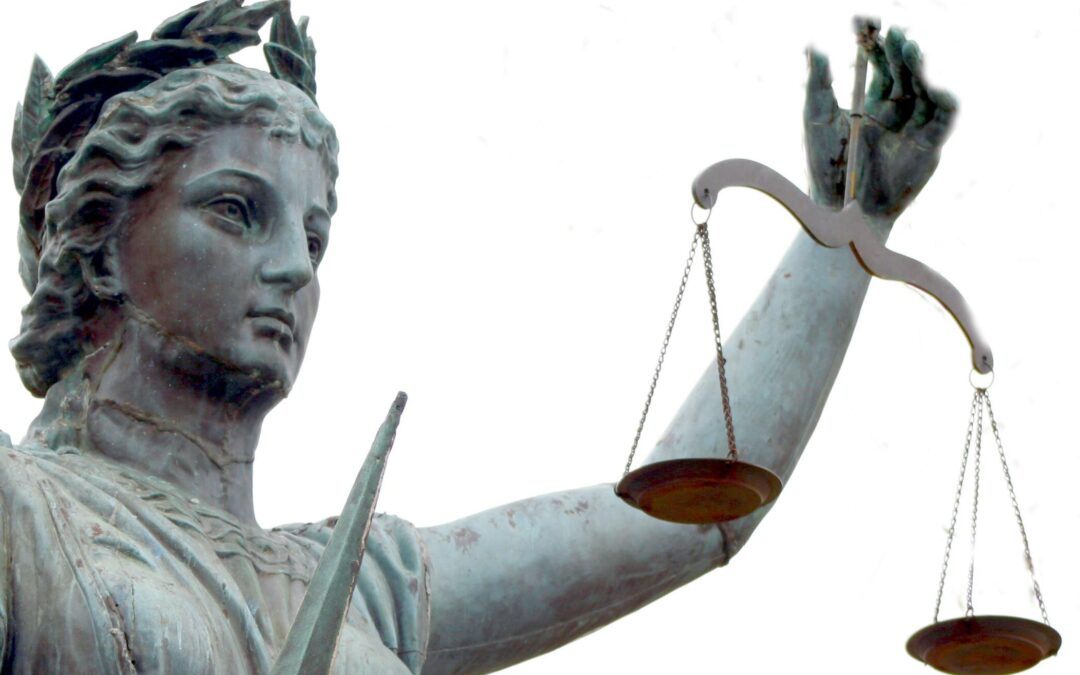
Jun 22, 2017 | News
The ICJ welcomes the adoption today, by consensus, of two UN Human Rights Council resolutions on the independence of judges & lawyers.
The Human Rights Council adopted the biannual resolution on independence of judges and lawyers, including a number of new elements on the theme of independence of lawyers and the legal profession. In particular, the resolution highlights the ongoing threats against and interference with the independence of lawyers and the ability of lawyers to fulfil their professional functions, including in relation to human rights.
The resolution reaffirms and builds on the UN Basic Principles on the Role of Lawyers.
The Human Rights Council also unanimously renewed the mandate of the Special Rapporteur on Independence of Judges and Lawyers for a further period of three years.
The unofficial text of the two resolutions are available in PDF format below:
Official versions will eventually appear on the UN website, at this location.









